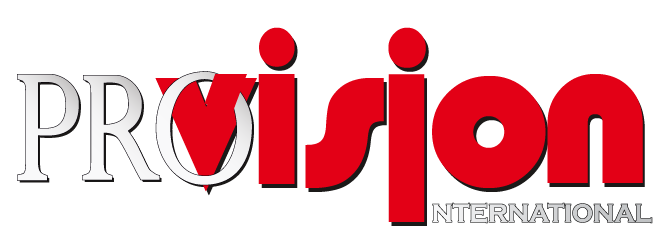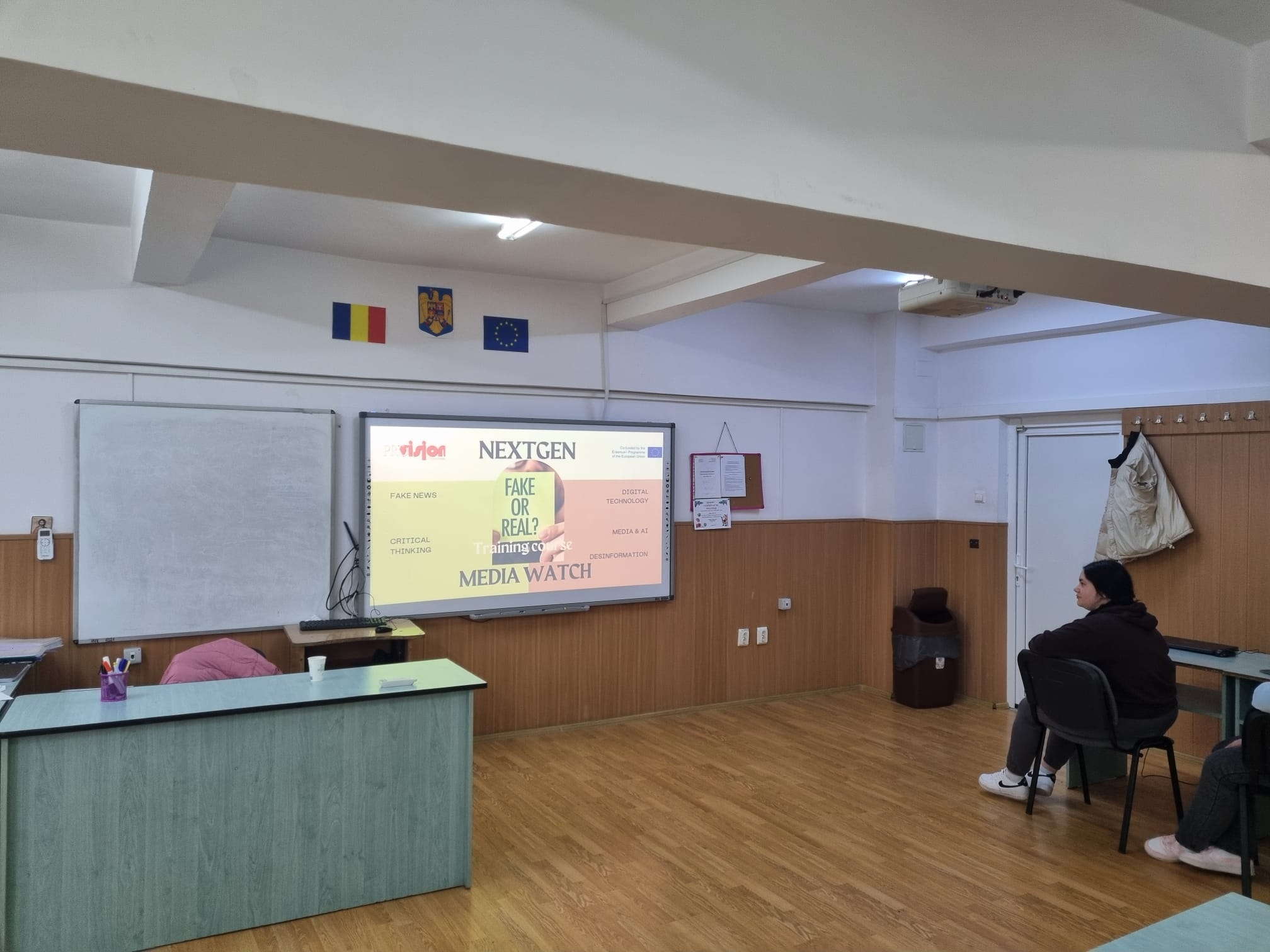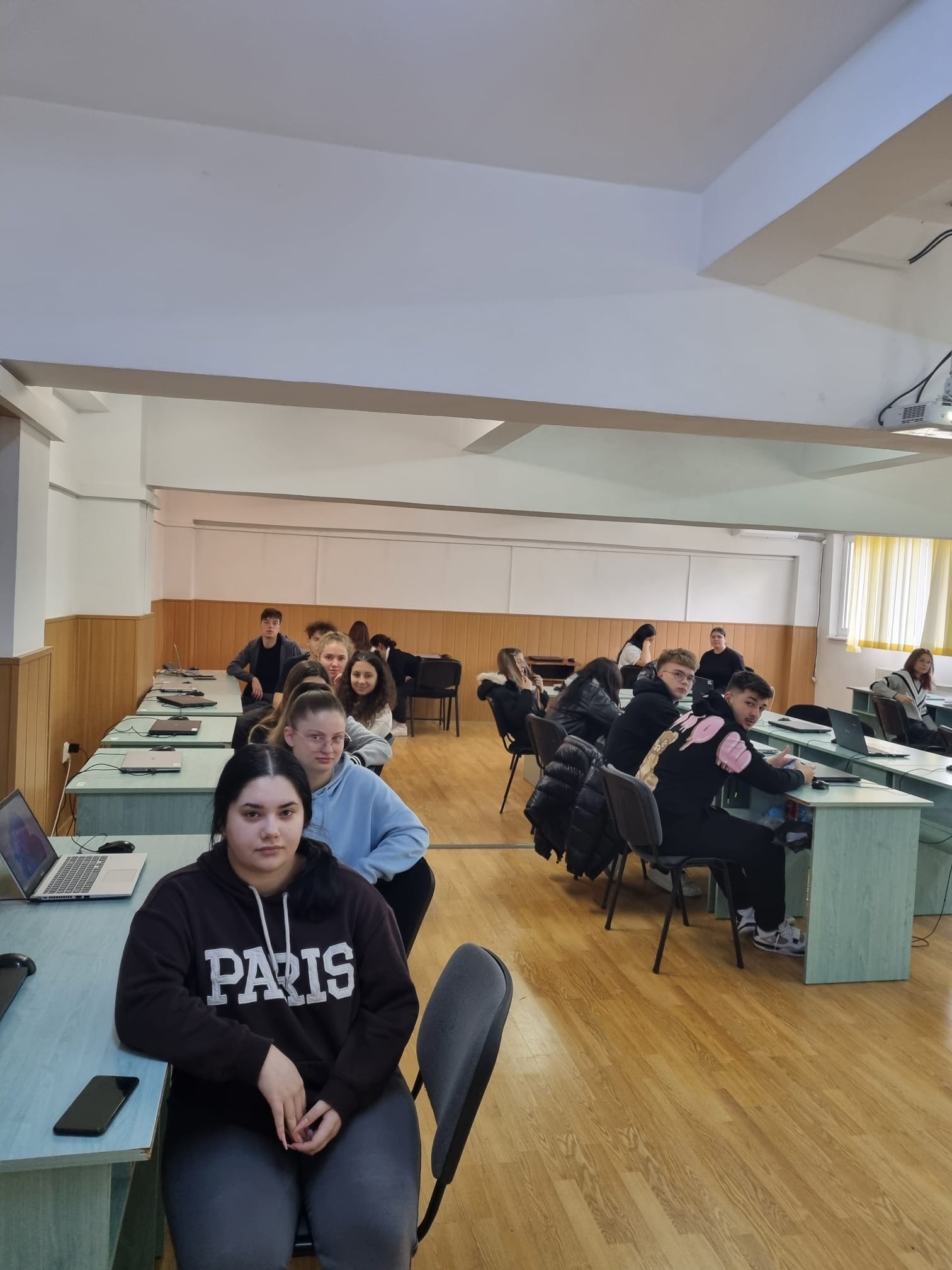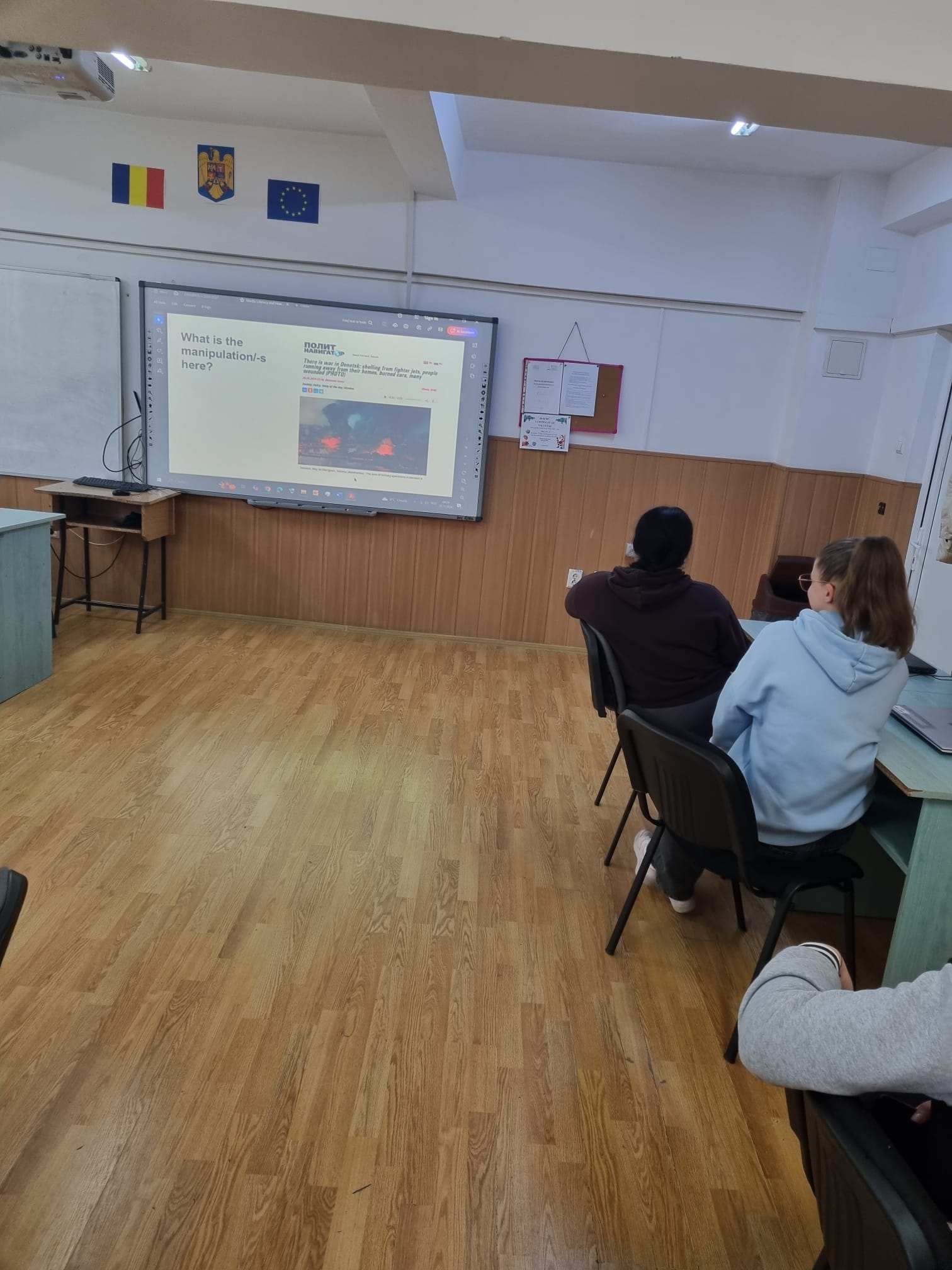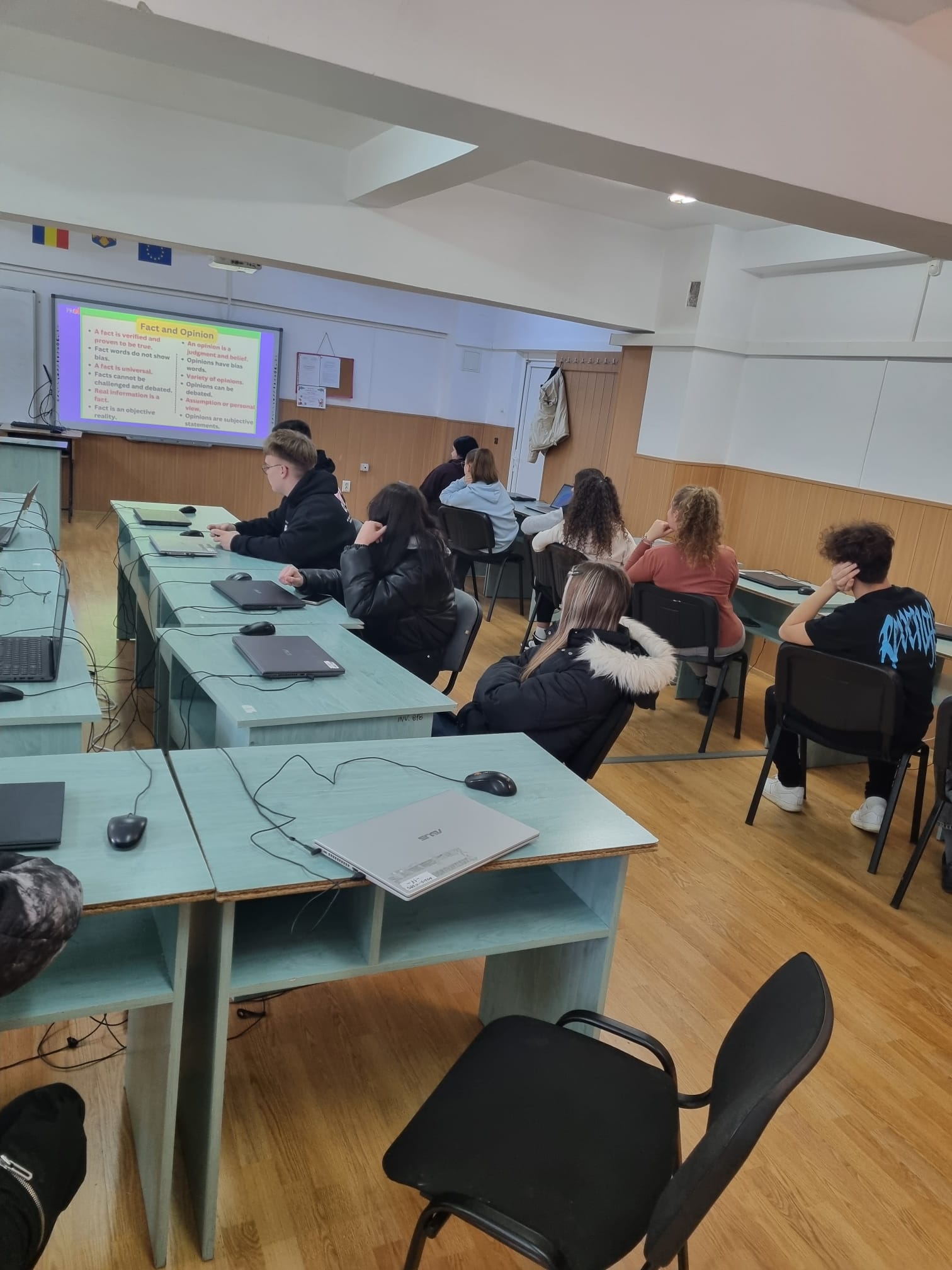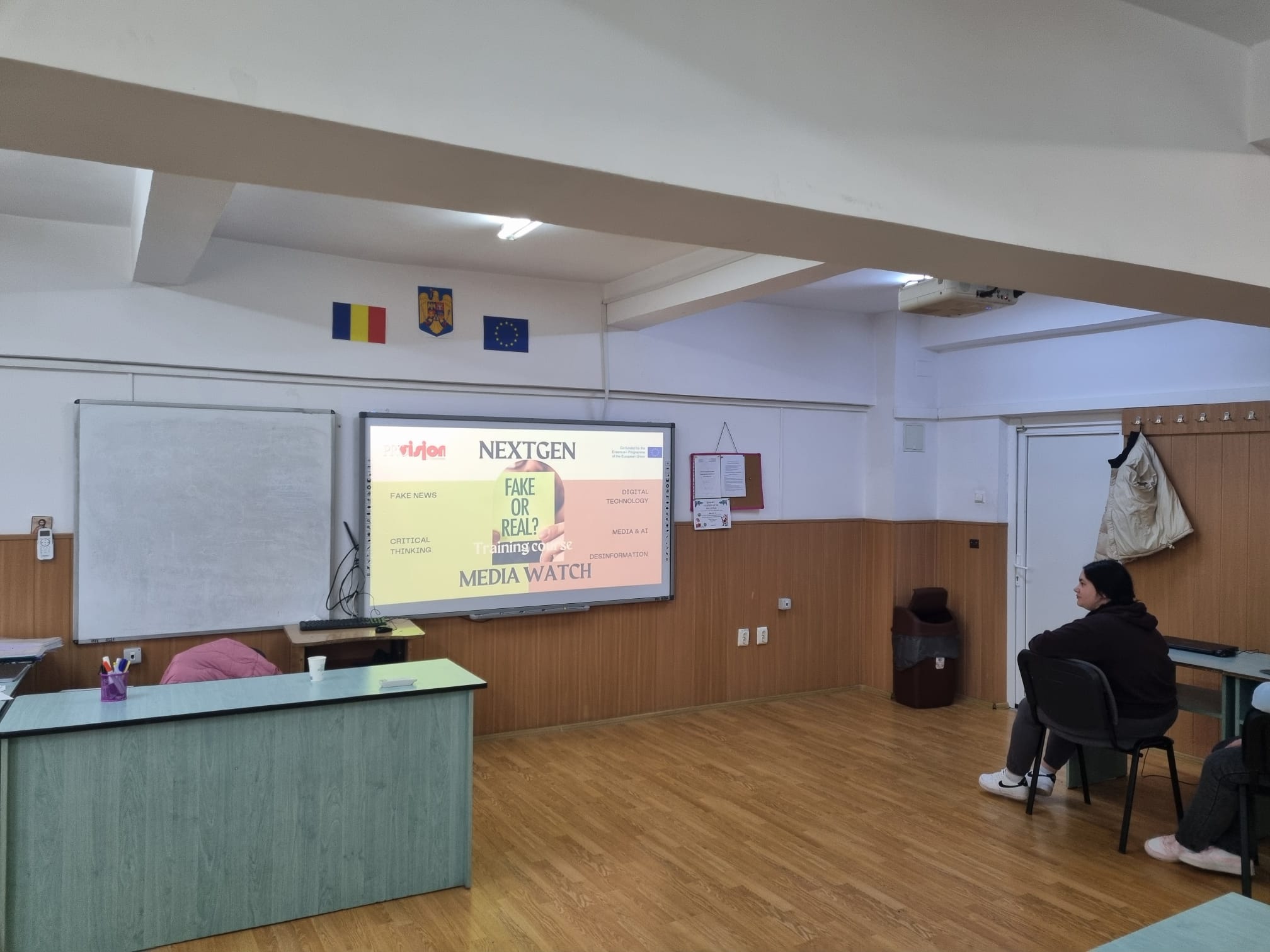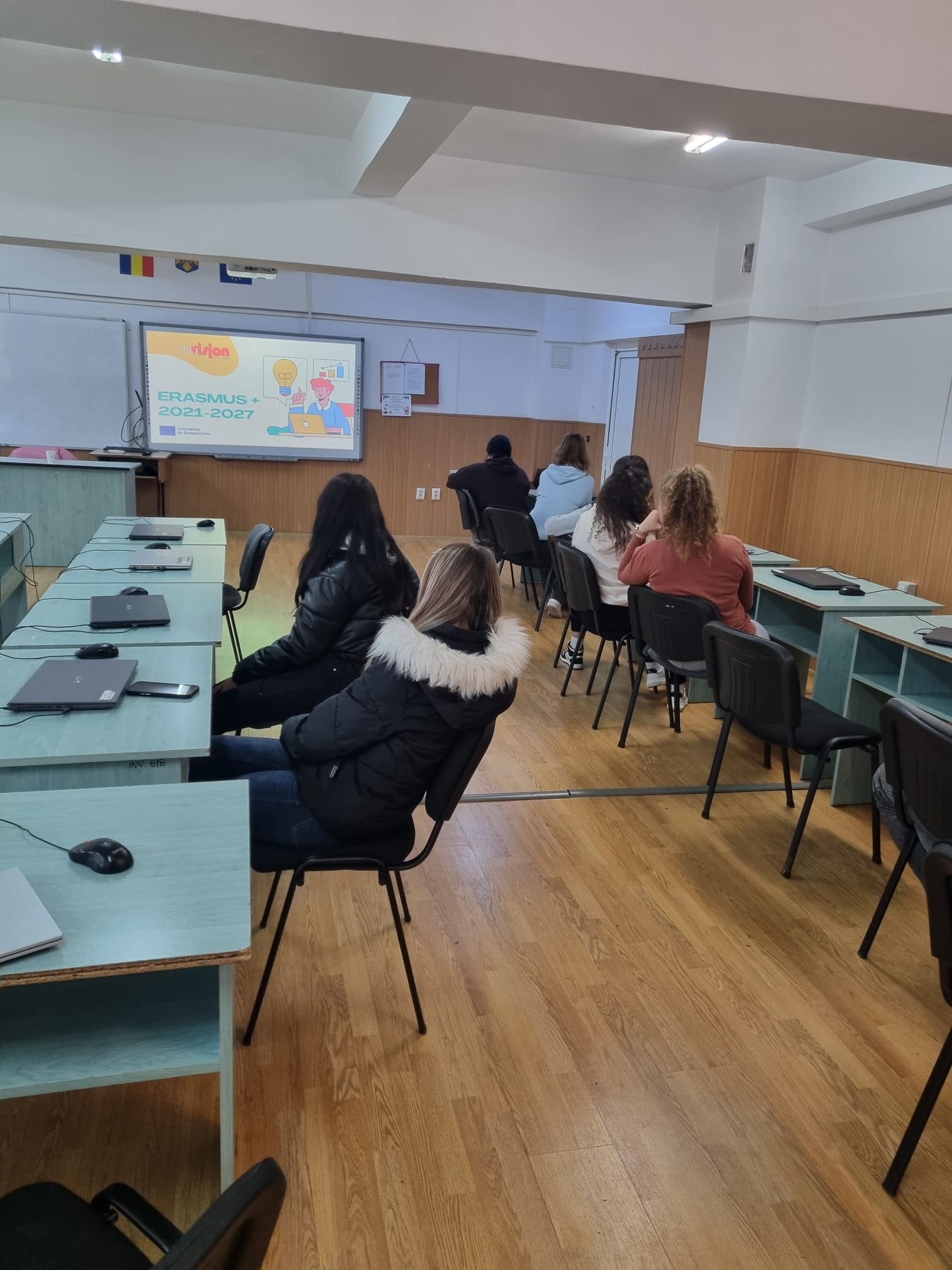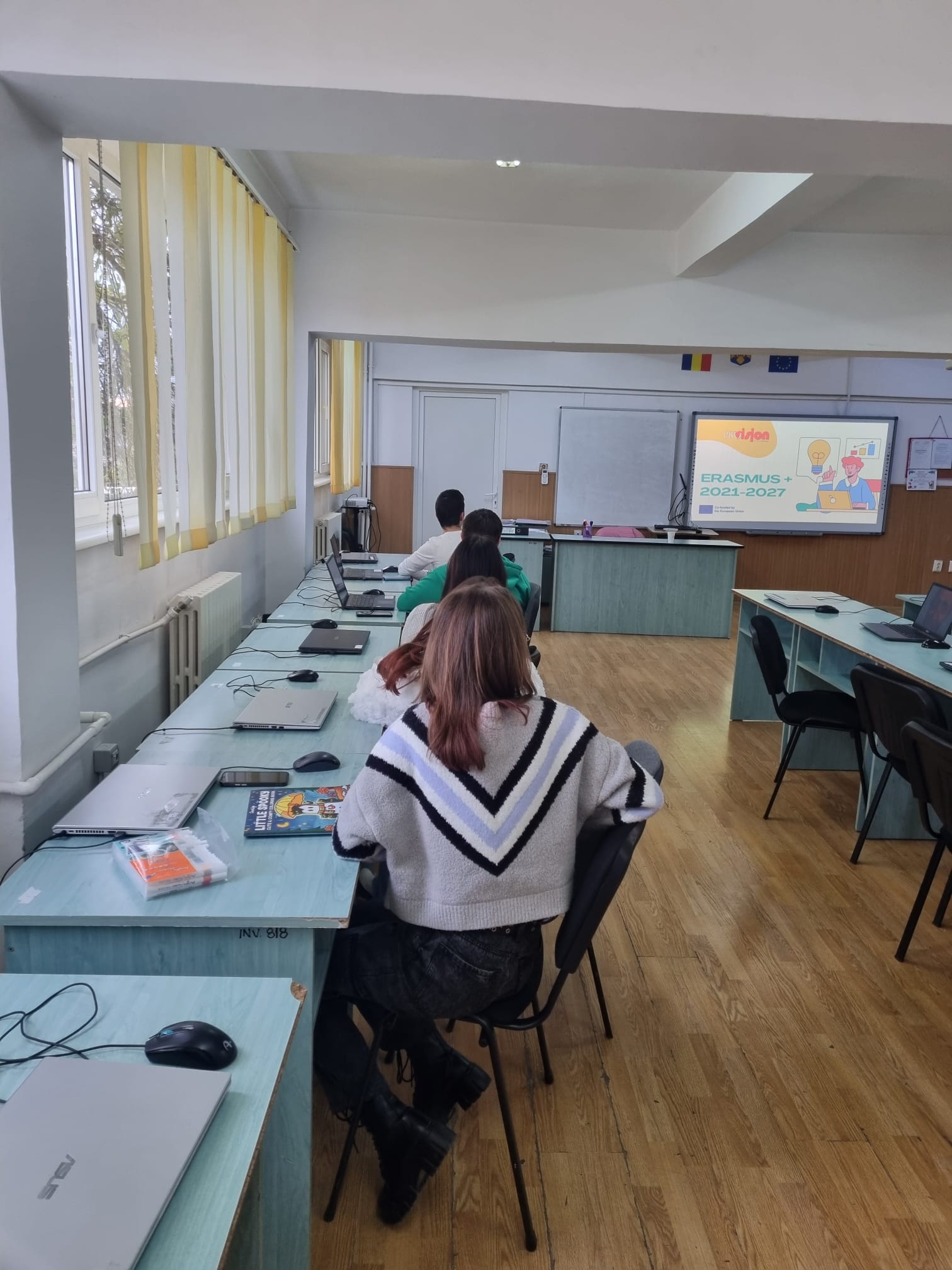As part of the personal dissemination of Professor Crihană Gina following the Erasmus+ training course, she organized a special activity for my class, where she serve as a tutor teacher. The session aimed to share insights from the program and raise awareness about critical media literacy, especially in light of Romania’s presidential election on November 24, 2024. With students eligible to vote for the first time, the activity emphasized the importance of making informed decisions at the ballot box.
The session began with an introduction to the Erasmus+ program, highlighting its objectives, opportunities, and professional benefits for individuals and organizations. This was followed by an overview of the training course’s key objectives and results, leading into an engaging exploration of fake news. Students learned how misinformation spreads and why verifying information is crucial in today’s digital era.
To enhance understanding, I showcased videos created with artificial intelligence to demonstrate deepfakes, using examples directly from the course curriculum. These examples set the stage for more in-depth activities, including:
- Open Discussions: Topics covered included misinformation, disinformation, malinformation, cognitive bias, confirmation bias, and distinguishing opinions from facts. These conversations highlighted the importance of critical thinking in navigating the digital world.
- Fake News Analysis: Students worked individually on laptops or phones to analyze and distinguish between real and fabricated stories, applying their newfound skills to real-world scenarios.
The students’ enthusiastic participation and positive feedback underscored the value of integrating media literacy into education. It was a fulfilling experience to empower my class with tools to think critically and responsibly, ensuring they are prepared to engage in the democratic process and beyond.
Professor Crihană Gina
Funded by the European Union. Views and opinions expressed are however those of the author(s) only and do not necessarily reflect those of the European Union or the European Education and Culture Executive Agency (EACEA). Neither the European Union nor EACEA can be held responsible for them.
